Wyniki wyszukiwania
85 results for query Energy transition
Reports(41)
-
Integrating Variable Renewables in Poland | Eight points on integrating variable renewable energy to the Polish power system

The Polish energy mix is changing. While absolute figures still show a rather small share of variable renewables in the generation mix, these will play a growing role in the future. The study of Forum Energii presents eight main areas of action that facilitate the further integration of the renewables in the specific context of a changing Polish power system.
7.12.2017 -
Heating transformation 2030 | Small district heating systems

87.5% (463 out of 529) of all district heating systems in Poland do not have the status of efficient systems. They must change this if they want to maintain access to public aid in the future and continue to provide Poles with heat at a reasonable price.
23.11.2017 -
The last bell for district heating in Poland

District heating in Poland urgently needs to be modernised. Negotiating transitional periods for EU legislation has so far allowed difficult decisions to be postponed. However, the deadlines are running. A comprehensive review of district heating systems is necessary.
24.10.2017 -
Polish energy sector 2050 | 4 scenarios

What will be the result if Poland keeps its energy mix based on coal, introduces nuclear power or promotes renewables? Forum Energii analysed four different scenarios for the development of the Polish energy sector over the next 30 years. Report presents the economic, social and environmental implications of their implementation.
22.9.2017 -
Flex-E | How to develop the DSR potential in Poland and reduce the costs of the energy system

The Polish energy sector is entering a new phase of transformation. Planned integration of industry into the the support for energy security offers a chance to reduce by at least 1200 MW peak demand for electricity in Poland during periods of critical load od Polish Power System. this is what results from the analysis of the national potential of DSR services prepared by Forum Energii.
27.3.2017 -
Revenues from ETS auctioning as source of financing for low-emission modernization in Poland
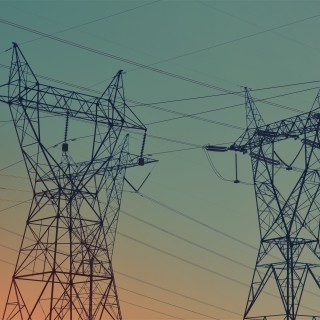
Revenues from auctioning of the national pool of ETS allowances may become the major source of financing for low-emission modernization of energy sector in the coming decade (2021-2030).
8.6.2016 -
Polish power sector riding on the wave of megatrends

Megatrends are major and permanent changes of social, economic, technological or political nature that affect societies, governments, and economies of particular countries. They form slowly but when accelerated, they are irreversible. Together with experts, we have identified the most important megatrends in the European energy sector that are affecting Poland.
27.1.2016 -
Elements of new market design for Poland
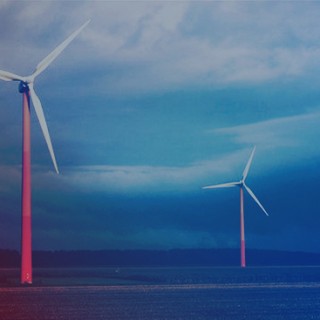
Both the European power sector at large and the Polish power sector in particular find themselves at a pivotal moment. Power systems are in transition, driven by commitments to continuing emissions reductions, growing penetration of renewables, and the need to provide affordable and reliable power.
17.12.2015 -
Energy transition in Poland | Edition 2018

Poland still has the least diversified mix of energy sources in the EU. However, we have been observing a decline in the share of coal in favor of gas and RES. This is, to a small extent, associated with a decrease in greenhouse gas emissions.
10.7.2018 -
How to ensure that the consumer improves the security of the energy system and benefits from it?

Ordinary Kowalski can improve the security of the energy system and at the same time save money. It is enough to change the energy tariffs and provide up-to-date information on how much electricity we use. In winter, the power system can be offloaded by 200MW. The annual costs of households could fall by as much as 160 PLN.
1.2.2017 -
Efficient use of Modernization Fund

On October 24, 2014, the European Council established the Modernization Fund (MF) for years 2021–2030 supplied with revenue from the sale of 2% of the total pool of CO2 emission allowances. The instrument is to support the modernization of power system and the improvement of energy efficiency in EU Member States, where GDP per capita in 2013 was lower than 60% of EU average (in nominal terms).
25.5.2015 -
Offshore energy | Downwind or upwind?

Offshore can become a Polish specialty. It can be a source of cheap, clean energy and help to improve energy security. Implementation of this technology is possible if only government decision is taken. It is also important to speed up the process of obtaining permissions by investors and reduce investment costs.
28.11.2018 -
Poland's Energy Policy 2040 in the spotlight

Probable delays of the nuclear energy project, insufficient attention to energy costs and the risk of non-compliance with EU climate and energy targets – these are some of the comments of Forum Energii on the draft Poland’s Energy Policy.
15.1.2019 -
Good heating practices from Denmark and Germany. Conclusions for Poland

Currently Poland faces a choice of long-term action plan in heating. As part of the Clean Heat project Forum Energii took a deep insight into experiences of Denmark and Germany, which significantly modernized their heat supply systems and improved air quality at the same time.
23.1.2019 -
Flexibility of the Polish power system | Diagnosis, potential, solutions

Flexibility of the power system means its ability to maintain uninterrupted operation under conditions of rapid and huge fluctuations in electricity consumption generation. It is an inherent part of the system design and control of its operation. In the analysis, Forum Energii puts forward solutions supporting the improvement of the national power system flexibility. In addition to reducing the costs of the power sector and the improvement in quality and reliability of the electricity supply, their objective is to reduce emissions by the power sector.
12.2.2019 -
Energy transition in Poland | Edition 2019

Growing imports of gas, coal and electricity. Increasing importance of gas in the energy mix and stagnation in RES. Increase in greenhouse gas emissions. These are the most important conclusions from this year's edition of the report "Energy Transition in Poland" prepared by the Forum Energii. Full report in English will be available soon.
9.4.2019 -
Locational market in Poland. Security of supply, costs and the impact on the energy transition

In the latest report Locational market in Poland. Security of supply, costs and impact on the energy transition, Forum Energii recommends changes on the energy market in Poland. It is a response to the emerging problems of the Polish energy transformation - high prices, ageing infrastructure, dominant share of coal. As an example, it presents the functioning of the electricity markets in the United States.
4.7.2019 -
Small steps to big changes | Impact of the "Clean Energy..." package on power sector

We are starting to implement new EU energy regulations. Will the "Clean energy for all Europeans" package heal the Polish energy sector and give it an impulse for development? How can the energy consumer benefit from the changes? In Forum Energii's report "Small steps to big changes", we analyse the provisions of the Package and their consequences for Poland.
12.9.2019 -
From the Loire to the Vistula River | Three steps in planning the energy transition

Polish-French relations have become a bit difficult lately. When President Macron said in an interview that the Paris climate protesters should move to Warsaw because it is Poland that is blocking European climate ambitions, Poland was in turmoil. Leaving aside the emotions, it is worth looking at how the French are coping with the energy transformation. This is what the new analysis of the Forum Energii is about.
30.9.2019 -
Capacity market for review | Analysis of the results of three auctions

The three capacity auctions for 2021-2023 are behind us. What is the result? Has it been possible to encourage manufacturers to make new investments? Does the capacity market support diversification of the mix? How much does the capacity market cost? And finally, do the new EU regulations concerning emission standards mean the end of the capacity market in Poland?
22.10.2019 -
Heating in Poland | 2019 edition

While the battle for new climate targets for 2050 is under way in Brussels, many Polish cities and villages are already struggling with smog. Forum Energii gathered the most important data on heating in order to highlight the importance of heating, which is treated as a poor cousin of the energy sector.
16.12.2019 -
Energy transition in Poland | 2020 Edition

Electricity production from coal is decreasing, electricity imports are increasing; the importance of gas in the energy mix continues to grow, and renewable energy sources also play a more important role in the system. These are the key conclusions of the Forum's recent study "Energy transition in Poland". This is the third edition of the report, which presents key data on the state of the Polish energy sector and its changes.
11.3.2020 -
Anti-smog roadmap for Żywiec | Clean heat by 2030
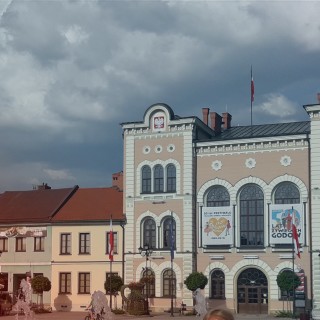
The challenge of fighting the coronavirus and the upcoming spring are distracting public attention from the problem of smog. But it will not disappear and as the boomerang will return in a few months with the start of the heating season. Especially to the towns and cities - where, like in Żywiec, more than 80% of heating energy comes from coal. In the latest report of the Forum Energii Anti-Smog Roadmap for Żywiec. Clean heat by 2030." we indicate what steps should be taken to get rid of smog by 2030. Now the report is available only in Polish, but English version will be published soon.
21.4.2020 -
Energy Boost for Poland
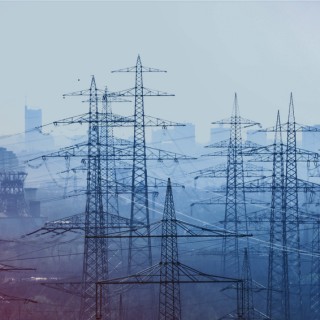
"Energy Boost for Poland" - a package for the economy prepared by the Forum Energii and Polish Confederation Lewiatan. Forum Energii and the Confederation Lewiatan call for the adoption of the "Energy Boost for Poland" package, which aims to mobilise available public and private funds for the Polish energy modernization. The implementation of the "Energy Boost for Poland" will stimulate investments worth over PLN 580 billion, which will create 240 thousand new jobs. Investments in the energy sector should be an element of the strategy for overcoming the crisis caused by the coronavirus pandemic.
11.5.2020 -
Renewables in heating

Heating and all of us in Poland have a problem. In domestic heating we rely on technologies from the 50s and 60s of the last century. In winter we have the worst quality air in the European Union. The society bears the enormous health costs related to air pollution - 120 billion PLN annually. We use primarily coal, which we are running out of, and we need to cover the costs of CO2 emission allowances. What next? Does coronavirus mean the end of dreams about clean air and the end of investments in modern technologies? Quite the opposite. Right now we should be looking at renewables.
13.5.2020 -
Poland: climate neutrality by 2050. Electrification and sector coupling

Electrification sets the direction of inevitable changes in many areas of our lives, including transport and heating. This direction will force a closer cooperation of various sectors of the economy with the future, completely different from today's power system. The integration of three industries — transportation, heat, and power generation— is the new concept for the operation of the entire energy sector. What can it look like in 2050? How will the necessary changes bring Poland closer to the goal of climate neutrality? Forum Energii in the new analysis convinces that a good strategy of sector coupling is a benefit for the Polish economy and society.
19.6.2020 -
Modernising the European lignite triangle
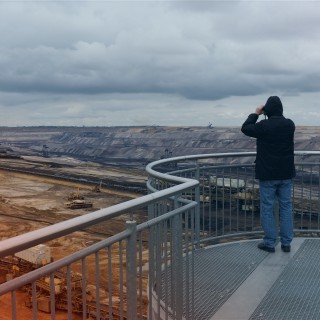
In a new study, Agora Energiewende and Forum Energii analyse the opportunity for a phase out from lignite and the effects this would have in the power sector in Poland, Czech Republic, and Germany by 2032. The study finds that an accelerated phase out is technically and economically feasible if coordinated among the three countries – provided, lignite is being substituted by renewable energy sources.
24.6.2020 -
How Poland can reach higher GHG emission reduction targets by 2030

At least 55%—this is the reductions target proposed by the European Commission for greenhouse gas emissions (GHG) by 2030. There is no turning back from increasingly demanding climate policy. In its latest analysis, Forum Energii shows how Poland can meet this policy.
4.12.2020 -
How to fill the coal gap? 43% RES by 2030?
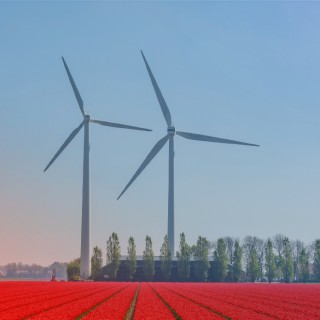
Poland has started phasing out coal. But while production is decreasing, CO2 emission allowances are becoming increasingly expensive. After 2025, when public support for outdated coal blocks runs out, energy companies will want to shut them down. With a decade, at least 10 GW of power may be lost from the Polish power system. How can this gap be filled?
26.10.2020 -
Energy transition in Poland | 2021 Edition

The production of electricity from coal in Poland is decreasing. For the first time in the country’s history, in 2020 coal’s share in the generation mix dropped below 70%. Renewable sources have slowly started to play a more important role in the mix, as well as gas. In the midst of the pandemic, domestic production has fallen faster than demand, and this gap is filled by energy imports. Poland remains the most expensive electricity market in the region.
17.3.2021 -
Dynamic and just | Network tariff design for the future
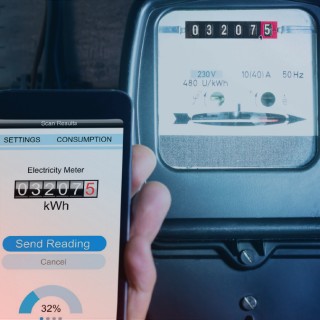
It is non-elastic, inefficient, unsuited to the changing realities of the energy market and the accelerating energy transition. The Polish model of network tariffs, i.e. the system of payments for delivering electricity to consumers, must be changed. In its latest report, Forum Energii, together with the Regulatory Assistance Project, analyses the principles that need to be considered when designing a new approach to tariffs.
6.5.2021 -
Green Gases | Biomethane and hydrogen in Poland

Over the next decades, the way Europe generates energy will change significantly. The goal of achieving climate neutrality means fossil fuels will be replaced by renewable energy sources within 30 years. Playing a key role will be biomethane and green hydrogen produced from RES—green gases—the development of which should already be spearheaded Poland. It is necessary to start planning the rational use of these gases in the economy because there probably will not be enough for everyone, and some sectors will be easier and cheaper to decarbonise through electrification. Poland is already working on setting the framework for their use in various sectors of the economy. The latest report by Forum Energii may help in preparing the strategy.
25.6.2021 -
The cost of carbon-free buildings and transport: the EU’s plans and Poland's challenges
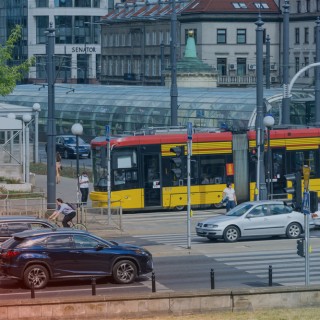
Work on the European Green Deal is accelerating. The main tool to achieve the new targets for reducing greenhouse gas emissions (GHG) in the EU will be the Fit for 55 package. Among its key elements is support for reducing CO2 emissions from buildings and transport. For Poland, this debate will be uncomfortable because over the course of three decades, not only has pollution not decreased but it has increased considerably in transport. This results in terrible air quality in Poland. Catching up, which is necessary for both climate reasons and the modernisation of outdated infrastructure and improvement of air quality, will be a challenge. The introduction of emission charges is intended to help. In its latest study, Forum Energii proposes measures to internalise the external costs of emissions in a way that is smooth, gradual, and socially acceptable.
2.7.2021 -
Microinstallations on a turning point | How to secure the future of distributed energy in Poland?
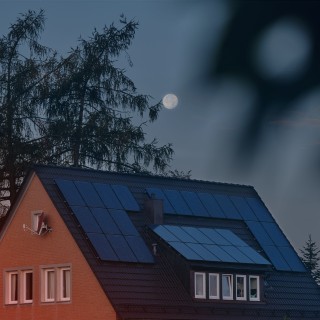
In recent years, over 600,000 households and businesses have invested in their own solar installations, and approximately 35,000 jobs have been created in companies offering services in this segment. This is the biggest, albeit unplanned, success of the Law and Justice government in the energy sector. However, further expansion of micro-installations in Poland is questionable - the government is planning changes in the rules governing this dynamically developing energy sector. This is an operation on a living organism, therefore surgical precision is needed in introducing changes - a transparent process, clear intentions and time that will allow the newly established sector and energy companies to prepare for the transition.
21.10.2021 -
Ready for 55%. A guide to financing the energy transition from 2021
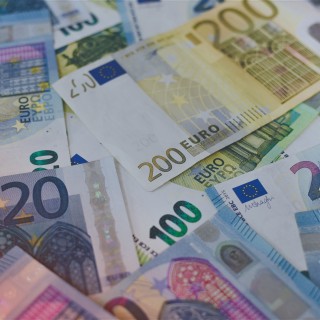
It’s PLN 560 billion [EUR 124 bln]. This is the amount Poland can allocate for the energy transition and phaseout of coal thanks to EU membership. This is a historic opportunity to shift the Polish economy—including the energy sector—to the low-carbon track and develop new industries. Although last year the Polish government declared the intention to pursue climate neutrality in line with EU policy, Poland’s decision-makers are anxious that the country will not be able to handle the challenge of decarbonisation. At the same time, the government’s relations with EU institutions are deteriorating, making talks about the EU funds difficult. So then, what resources are at stake?
9.11.2021 -
Energy transition in Poland | 2022 Edition

On top of the economic slowdown in 2020 caused by the COVID-19 pandemic, 2021 was the next year when the cards dealt unexpected circumstances that diverged from the previous years of stability. In Europe, we experienced an energy crisis marked by sharp spikes in gas prices and CO2 emission costs. The wartime reality of 2022 means even more uncertainty and market volatility with energy security and independence from imported raw materials becoming the most important topics. Poland continues drifting along in the modernisation of the energy sector, as clearly indicated by data collected by Forum Energii in its annual report “Energy Transition in Poland”.
25.4.2022 -
Energy in Belchatow After Lignite
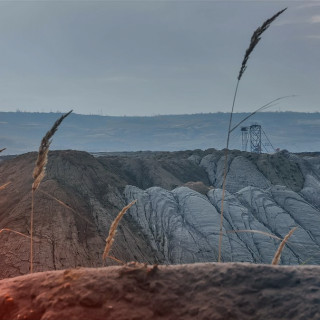
Transitioning Europe's largest coal power plant to a secure, resilient, affordable clean energy future. New study outlines a transition plan for Europe’s largest coal-fired power plant, located in Belchatow, Poland.
20.10.2022 -
To accelerate the development of RES
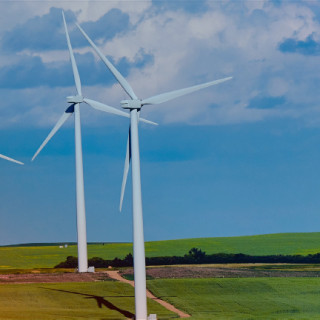
The Polish energy system urgently needs an accelerated development of new renewable capacity. Work is underway in the Polish parliament to liberalise the 10 H distance rule, which stemmed development of onshore wind. Changing this rule is one of the most important decisions on which the success of Poland's energy transition lies. The seemingly small change in the location of investments from the originally planned 500 m to 700 m from residential buildings - is a significant reduction in the potential for wind energy development. This is one of the most high-profile examples of how renewable energy sources are still treated by decision-makers as an unwanted addition to the energy system and face development barriers. Other problems include the length and complexity of the process of locating investments and obtaining planning permits, as well as the lack of connection capacity for installations. In the latest Forum Energii report, we propose solutions to optimise administrative processes and increase the technical capacity to connect new RES projects to the grid.
2.2.2023 -
Poland's support in the energy crisis. Last call for NRP

If Poland does not come to an agreement on the NRP in the coming months - it will be too late for sensible spending of the money available to the country. By the end of June, the Polish government may present to the European Commission changes to the spending plan for the National Recovery Plan - completed with investments to increase resilience to the energy crisis. Consultations with the EC are just starting. This is the last bell for Poland to reach for loans and grants under the the Recovery and Resilience Facility and the REPowerEU plan. How to change the Polish NRP to make it a practical response to the energy crisis?
3.4.2023 -
Energy transition in Poland | 2023 edition

2022 was another year of unexpected events. Russia’s full-scale invasion of Ukraine changed Europe’s approach to fossil fuel imports, particularly from Russia. The resulting energy crisis triggered by high gas prices and the decline in nuclear and hydroelectric production led to record high energy prices across Europe. These events are changing the way European countries look at the energy transition. Meanwhile, the modernisation of the Polish energy sector is still very slow. An overview of the increasingly comprehensive data on the energy sector is published by Forum Energii in the sixth edition of the report ‘Energy Transition in Poland. Edition 2023’.
17.4.2023 -
Past time for gas?

Over the past two years, natural gas has become a high-risk fuel: it is subject to huge price fluctuations and, following the disruption of supplies from Russia, competition for imports of this resource from other sources is increasing. Not long ago, there were plans in Poland to significantly increase the consumption of natural gas throughout the economy - by 75% by 2035. It was supposed to be a transition fuel.
14.6.2023
Insights(33)
-
Polish Energy Policy until 2040 | First commentary of Forum Energii
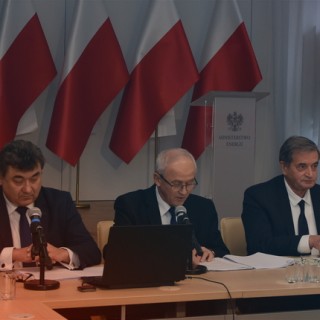
Today, the Ministry of Energy presented the State Energy Policy outline for consultation – a welcome announcement. We consider this a basis for public discussion, in which energy and environmental experts, business representatives and the broader society alike should participate. Energy affects all of our lives. Particularly at times of high energy prices we have to think about what to do next.
23.11.2018 -
Power sector after the elections | Three tasks for the new government

The Polish energy sector is at a turning point. What will the next government find after the elections in the autumn? It will inherit not only electricity market, but also smog.
19.6.2019 -
BlacUKout and energy transition

When electricity was cut off for almost an hour in London on 9 August, a nervous wave swept through the media, whistling up blackout throughout Europe and blaming the unstability of renewables. It was worth holding off on a moment with such opinions, because the causes and sequence of events proved to be much more complicated. The British transmission system operator National Grid has published an initial report which shows that a conventional gas-fired power plant failed in parallel to the offshore farm. And it all started with.... lightning.
21.8.2019 -
Climate neutrality - empty watchword or concrete goal? | The French perspective

After June negotiations at the European Council, climate neutrality is no longer an abstract concept used by international experts, but is becoming a widely commented issue of public interest. As Michał Kurtyka, President of COP24 in Katowice, said at one of the meetings of Forum Energii: "Climate neutrality is a civilisational choice for Europe".
23.8.2019 -
Will the revenues from CO2 emissions disappear into thin air?

Low emission energy transition will cost up to 200 billion EUR in the years to come. This impressive amount may suggest that Poland cannot afford to invest in the power or heating sectors. Meanwhile, building a safe and reliable system is crucial for citizens, economy and climate. It is high time to look at potential sources of financing for low-carbon modernisation, and make sure they do not vanish into the budget.
28.8.2019 -
DEcarbonization in Germany 2030

Just before the UN climate summit in New York, the CDU/CSU and SPD coalition announced new ideas on how to achieve Germany's 2030 climate targets. For now, these are mainly national measures, but a similar discussion and perhaps similar solutions will emerge at European level. This will have a significant impact on the EU regulations concerning the energy sector, and thus also on Poland.
24.9.2019 -
1 GW of PV in Poland - this is just the beginning

In Poland we have just reached 1 GW of capacity in photovoltaic installations. Their growth rate has accelerated in the last several months. With the increasing economic attractiveness of photovoltaics, we are no longer wondering whether this development will be continued, but what are its limits. One thing is certain - we will wait much shorter for the next gigawatt and there will be at least a few drivers of this growth.
11.10.2019 -
Draft Poland's Energy Policy 2040 - new and better?

On the 8th of November 2019, the Ministry of Energy has presented an updated draft of Poland's Energy Policy until 2040. Yet, the adoption of the energy strategy will be the responsibility of the new government, including new ministries - the Ministry of State Assets and the Ministry of Climate. In our opinion, it is high time for Poland to address the climate and energy crisis. It is also important for us to start implementing the commitments made at the EU forum. The energy sector should be given a course in line with international trends, and not be allowed to float in a random direction.
29.11.2019 -
Climate neutrality – Poland is in favour and even against | A talk about the results of the last European Council
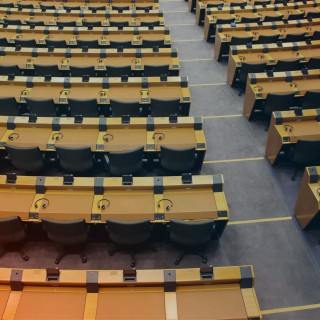
What actually happened at the recent European Council? Poland supported the goal of climate neutrality or quite the contrary? What can be expected in the coming months? Aleksandra Gawlikowska-Fyk and Joanna Maćkowiak-Pandera discuss the results of the European Council conclusions and its implications.
20.12.2019 -
RES auctions in Poland | Results and trends

The RES auction marathon is behind us and we finally know the final result. Twelve auctions for various technological baskets, for new and existing installations, were held during three weeks. The contracted 90.3 TWh of new, green electricity for 15 years is worth PLN 20.2 billion. As much as 86% of this volume will be purchased at prices lower than those currently prevailing on the wholesale electricity market. This is another proof that renewable energy sources can compete with conventional units without additional support.
23.12.2019 -
Just Transition Fund - we will benefit, but under conditions

The European Commission presented a draft regulation on the Just Transition Fund. This is an instrument to bring the UE closer to achieving climate neutrality in 2050 and prevent possible social exclusion. Although Poland proposed the creation of the fund, we missed the discussion about its shape.
15.1.2020 -
Fighting on the wrong front. Polish gvernment intends to subsidise energy consumption instead of fighting energy poverty

The Ministry of State Assets announces subsidies to energy bills for people earning less than 5 000 net per month. The reaction to the increase in electricity prices in Poland has shown that politicians are so afraid of this subject. However, they have no good idea how to solve it.
3.3.2020 -
Will the coronavirus slow down or speed up the low carbon energy transition in Poland?

The world is in chaos. The priority is to stop the spread of the virus and contain the crisis. A stable energy supply is crucial - it's hard to imagine what would happen if there was no power or heat supply now. The million dollar question however, how will the current crisis affect the energy transformation in the long term?
21.3.2020 -
Investment in the energy sector as a remedy for the crisis

After a few weeks of the pandemic in Poland, we know for sure that the virus will infect the economy, even as we finally get rid of it ourselves. We need to act decisively right now. But we also need to think about economic recovery, in which the low-carbon transformation of energy has to take a central place. This is the time for bold decisions, so far postponed. A strategic rebuilding of the sector must be announced today to help society emerge from the crisis and provide long-term benefits.
1.4.2020 -
The EU is ready to co-finance our energy transformation ― what does the Polish government have to say?
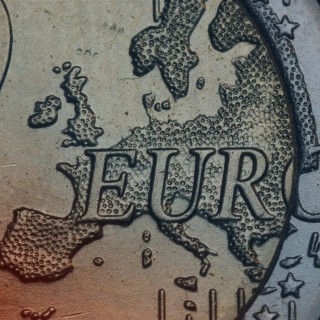
On 17 July the European Council will launch the final negotiations on the EU budget, unprecedented in scale and intended to pull the EU out of recession and give it a new boost. Since December 2019 Poland has been part of the EU discussions, trying to distance itself from climate neutrality in 2050. Although all other Member States agreed to it. For the time being, however, it seems that we may be one of the countries that will benefit most from the distribution of funds―we may gain over PLN 140 billion for the energy transition alone. Yet, the money will not be granted unconditionally. Poland needs to have a plan in place to achieve the EU's common goals―to commit to climate neutrality and to contribute to a 40% or even 55% reduction in emissions by 2030.
15.7.2020 -
Energy sector integration | Key to becoming climate-neutral by 2050

The future energy mix will be dominated by renewable energy sources (RES) with zero production costs, such as wind farms and photovoltaics. The abundance of cheap electricity will allow for the replacement of fossil fuels, both in heating and transport sectors. Effective integration of these sectors, within one energy system, will also help to solve the problem of weather-dependent RES production.
28.7.2020 -
55% ― only without panic

EU climate policy is accelerating again. The European Commission has just proposed raising the target for reducing greenhouse gas emissions until 2030 to 55%. Poland has always opposed ambitious goals, but now a breakthrough seems possible―the end of coal is inevitable, we must take care of energy security, after coronavirus we need new investments, and reducing CO2 emissions is associated with improving air quality, which the government defines as a strategic challenge. By taking these measures now, in heat, electricity and transport, emissions can be reduced by over 40%. The remaining cuts will come from the new policies on industry and agriculture and the sharing of efforts between Member States.
18.9.2020 -
Five energy projects that must happen in 2021

The future begins today, not tomorrow. The year 2020 was unusual in many ways, so many people will be relieved that it is now ending. But in terms of the energy transition, it was a watershed year. The European Union reached agreement on the European Green Deal. In Poland, the government and labour unions openly admitted that Poles need to talk about the end of the coal era. The energy sector in the country is at a crossroads and it is time for it to choose the right path for its further operation and development in 2021.
28.12.2020 -
Green hydrogen strategy still too gray
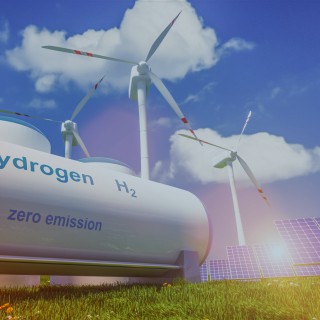
The government is about to conclude its public consultation of the draft Polish Hydrogen Strategy until 2030 with an Outlook until 2040. It gives hope that this time around Poland will join other European countries in the early stages of creating new technological solutions and supply chains. It is a chance for building national potential in a new industry and creating jobs. However, the hydrogen strategy is not yet reflected in other strategic documents defining the future of the Polish energy sector.
15.2.2021 -
EU Recovery Fund: 3 things Poland needs to do for the mechanism to bring real change

The National Recovery Plans are built on credit. The investments we design today must serve future generations—our children—because we all will be paying it back until 2057. It is based on concrete reforms, changes that need to happen in order to achieve the intended objectives. The consultations on the recovery plan in Poland is now coming to an end. How should we change it so that the money pays off in the future? In this opinion, I refer to the Green Energy and Energy Efficiency Component.
31.3.2021 -
Poland needs 2 GW of new photovoltaic capacity annually - that's why prosumers should be supported

The government is announcing changes in the support system for prosumers. The combination of the current operational support scheme (a version net-metering, called “rebates”), subsidies in the form of the “Mój Prąd” program and tax credits resulted in rapid development of solar energy in Poland. Within a few years the installed capacity in micro-installations increased from 200 MW to 3.3 GW. Security of energy supply in the summer has strengthened, CO2 emissions have been reduced and the generation mix has become more diversified to some extent. Citizens have fallen in love with renewables for good. So what’s next?
23.6.2021 -
NABE - the hibernatus of the Polish energy sector

In the film with Louis de Funès, a separate, unreal world was created for the titular hibernatus to make him feel comfortable in the new reality. With the National Energy Security Agency (NABE) that the government is proposing for coal power, it is similar. The ring-fencing of coal assets is necessary because they are making increasing losses, the power companies are in debt, and with the coal burden in the new reality they are running out of finance to invest. However, without a cost-benefit analysis for the economy and society, or an assessment of the risks, NABE, instead of unlocking the transition, may hibernate it and introduce chaos that will threaten Poland's energy security.
28.6.2021 -
FIT FOR 55 - what will the package contain?

On 14 July, the European Commission will publish the Fit for 55 package consisting of several legislative proposals. This will officially launch the discussion on measures to achieve the interim EU climate neutrality target, i.e. a 55% reduction of CO2 emissions compared to 1990. Before these rules finally come into force, they have to be accepted by EU member countries (i.e. the Council) and the European Parliament. The negotiations will take at least a year, most likely - two. The changes will not be law until 2024, but it is high time we considered how to implement them for the benefit of the climate and the economy.
13.7.2021 -
10 steps to overcome the energy crisis

The prices of coal, gas, and CO2 are reaching record levels while the price for electricity is galloping, causing panic among politicians, energy consumers, and institutions responsible for maintaining Poland’s energy security. There is a state of emergency in the Polish energy sector caused by, among other things, the situation on the energy source market, but not only. The country is also bearing the consequences of many years of postponing necessary modernisation decisions. It is time to take urgent actions that match the situation.
8.12.2021 -
Poland has spent more than a trillion zloty (EUR 220 billion) on fossil fuel imports since 2000
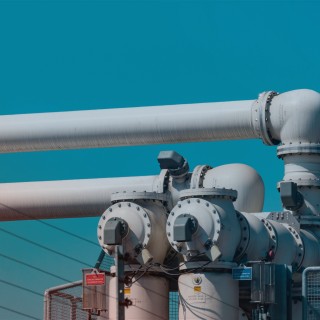
In recent months, rising energy prices have caused panic among policymakers. Gas and coal prices on world markets are at record highs, and crude oil is also becoming more expensive. In addition, Poland has become one of the EU countries most dependent on fossil fuel imports.
18.1.2022 -
The end of energy resource imports from Russia?

On February 24, Russia started the Ukrainian war. Nothing will be the same again. Russia's brutal attack made the ongoing conflict around energy resources all the more obvious. In 2021 alone Russia could have earned PLN 500 billion (or $120 billion). from the export of energy resources[1]. This revenue funds the Kremlin's military spending. Now we are considering whether giving up Russian fossil fuels is possible. Undoubtedly, this would be a radical solution with far-reaching and not entirely known consequences. If this were to happen, solidarity and close cooperation within the EU would be more important than ever before. In this article, we analyze what options Poland has to break its energy dependence on Russia.
28.2.2022 -
Whom to ask how Poland spends billions from the Modernisation Fund?

The European Union has decided to allocate 2% of the allowances from its emissions trading system (EU-ETS) for support to poorer countries in their energy transition. Since 2021 this money is transferred to Poland, among others. The local operator – the National Fund for Environmental Protection and Water Management – has been distributing the funds without adequate public scrutiny and information. A year after taking charge of the Modernisation Fund, there is no transparent website to adequately inform society and potential applicants on what and how over EUR 11 bn (PLN 50 bn) is to be spent (and a further increase is on the table). This article deals with the consequences of the current flaws in this process and why their removal is so important for Poland.
23.5.2022 -
RRP: The bare minimum for over €9bn

With one year delay the national Recovery and Resilience Plan (RRP) is entering Poland. So far, the discussion around the RRP has focused primarily on money. Meanwhile – and this is particularly evident in the area of energy transition – the RRP is an instrument that has mobilised the Polish government to work out the necessary reforms, involving an in-depth analysis of challenges ahead, assessment of specific solutions, and necessary legal changes, all within specific timeframe. Investment support – although crucial – plays a secondary role in accelerating the implementation of reforms.
2.6.2022 -
How to maintain Belchatow's energy future

Europe is going through its biggest energy crisis ever. The attention of decision makers is focused on ensuring energy and heat supplies in the coming months. Meanwhile, long-term challenges and problems in the energy sector that have not been solved before are only accumulating. One of them is the future of the largest power plant in Poland.
15.11.2022 -
Conclusions from the 7th capacity market auction - cleaner, but adequacy remains a challenge

The results of the seventh auction in the Polish capacity market clearly show the dilemma Poland has faced - existing high-carbon (coal) capacity can no longer be supported with this mechanism, while gas is risky due to the geopolitical situation. Although Polish energy companies have not completely abandoned gas projects, fewer appeared in the auction than previously announced. There is also clearly a greater variety of technologies than before - for the first time, contracts were granted to storage. The market is still expensive - for the second year in a row auctions ended in the first round and at the maximum price.
20.1.2023 -
Electricity market design: one size won’t fit all

The energy crisis has highlighted imperfections in the EU power market. The current rules were created almost 30 years ago with the aim to incentivise large conventional power plants, but they now need to be adapted to new challenges.
17.2.2023 -
Billions of Euros for LNG and LPG still flowing from the EU to Russia

The EU embargo on Russian fuels did not extend to natural gas (including LNG, liquefied natural gas) or LPG (liquefied petroleum gas). In 2022 alone, EU countries paid as much as 16 billion euros for Russian LNG, a record high. Poland did not import any LNG from Russia, however it is the largest importer of LPG in the entire EU. In 2022, Poland spent about 700 million euros on Russian LPG. In this article, Forum Energii will explain how to close the loopholes in the EU embargo on Russian resources to finally eliminate them from the EU market.
29.3.2023 -
Europe needs a new energy security strategy

The European Union’s Energy Security Strategy was adopted in 2014, shortly after Russia’s annexation of Crimea. By now, not all of it has been implemented, and some of its points are outdated. After ten years and Russia’s full-scale attack on Ukraine—and in the era of a climate crisis—the EU’s energy security strategy needs to be rewritten. The basis of this strategy should be a cost-effective, but also decentralized, digitalized and decarbonized energy system based on renewable sources in which energy efficiency plays the key role. Such a future is worth fighting for.
28.7.2023
Events(9)
-
Conference | COP24's contribution to the Paris Agreement | New dimension of energy security
21.11.2018 Villa Foksal, ul. Foksal 3/5, Warszawa
Energy security and climate change is an inseparable but often overlooked topic that should be taken up in the discussion on energy transition. Just ahead of the UN Climate Change Conference in Katowice, The German Marshall Fund’s Warsaw Office and Forum Energii hosted an event - COP24's contribution to the Paris Agreement | New dimension of energy security. You can watch entire conference on our youtube channel.
-
Expert meeting | Climate and energy big picture 2030 after the European elections
4.7.2019 Warszawa
On the 4th of July, Forum Energii organized a debate on EU post-elections priorities 2030 in the field of energy and climate. What are the challenges awaiting the next European Commission and Parliament? What should be the EU key priorities regarding energy transition in the next 10 years? We discussed it within a group of key organizations from the energy, climate and transport sector.
-
Panel expert meeting | Back to the future | How to change the energy market?
12.9.2019 Warszawa
The energy transition starts with the energy market. Digitalization, decentralization and decarbonization put pressure on the functioning of the market. Poland is on the threshold of such a discussion, and the package "Clean energy for all Europeans" is its prologue. The impact of this package on the energy sector is the subject of a panel of experts organized on 12 September by Forum Energii.
-
Forum Energii LIVE – webinar series
26.3–22.6.2020
The coronavirus pandemic is keeping us at home. Let's use this time to meet on the Internet. We have prepared a series of webinars: Forum Energii LIVE. We present the most important data on the energy sector, energy transformation and heating sector, but also we discuss the challenges and opportunities that the global economic crisis presents to Governments and the energy industry.
-
Panel expert meeting | Sector coupling - Polish energy sector climate neutral by 2050
9.6.2020 zoom
Achieving climate neutrality is one of the main goals of the European Union. We cannot stay indifferent to climate change and our task is to develop measures that will effectively reduce emissions and stop catastrophic climate change. Transport, heating and energy will have to change as environmental sectors. Electrification of district heating and transport based on low-carbon sources is a huge opportunity, but requires a major change in thinking about the energy transformation.
-
Panel expert meeting | Green Gases
18.11.2020 zoom
One of the key goals of the European Union is to achieve climate neutrality. This cannot be done without the energy transition. The aim of the event, in the formula of a panel expert meeting, was a critical discussion on the further development of green gases, based on the guidelines for the hydrogen strategy of the Ministry of Climate and the report of the Forum Energii, which will be published soon.
-
WEBINAR: Energy transition in Poland. Coal power industry on the turn
8.4.2021 clickmeeting
In 2020, for the first time in history, the share of coal in the Polish generation mix dropped below 70%. Renewable sources have slowly started to play a more important role in the mix, as well as gas. In the midst of the pandemic, domestic production has fallen faster than demand, and this gap is filled by energy imports. Watch the Forum Energii webinar! The event was held in English.
-
Conference | European Energy Security: One Year into Russia's war in Ukraine
19.4.2023 Warszawa
Forum Energii and ECFR Warsaw Office invite you to attend the conference "European energy security". One year after the start of Russia's full-scale invasion of Ukraine, we want to create a space to reflect on how the events of recent months are affecting energy security in Europe and what the priorities should be in the coming period. >>>Click to watch a video of the conference<<<
-
Online conference | Energy 2023: a breakthrough?
31.1.2023 Centralny Dom Technologii + online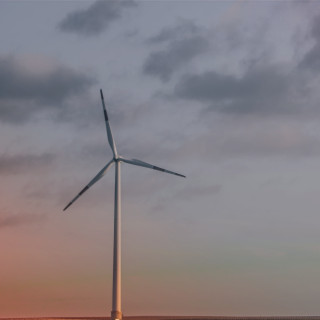
Forum Energii i Polityka Insight holds an online conference "Energy sector 2023: A Breakthrough?". The 2022 has been extremely tumultuous, hammering out previous problems in the energy system and piling up new challenges. The world had just begun to recover from the effects of the COVID-19 pandemic when Russian aggression in Ukraine renewed anxiety in Europe. The sudden scarcity of energy resources has exposed the weakness of EU countries' energy policies, which are based largely on Russian fossil fuels. Previous analyses on which strategic decisions were based became almost pointless. It has become clear to Europe that the energy transition must accelerate. What decisions must be made in 2023 to guarantee Poland's energy security in the years to come? Participation in the online conference is free. The broadcast will take place on the youtube of the Forum Energii. The conference will be held in Polish.

